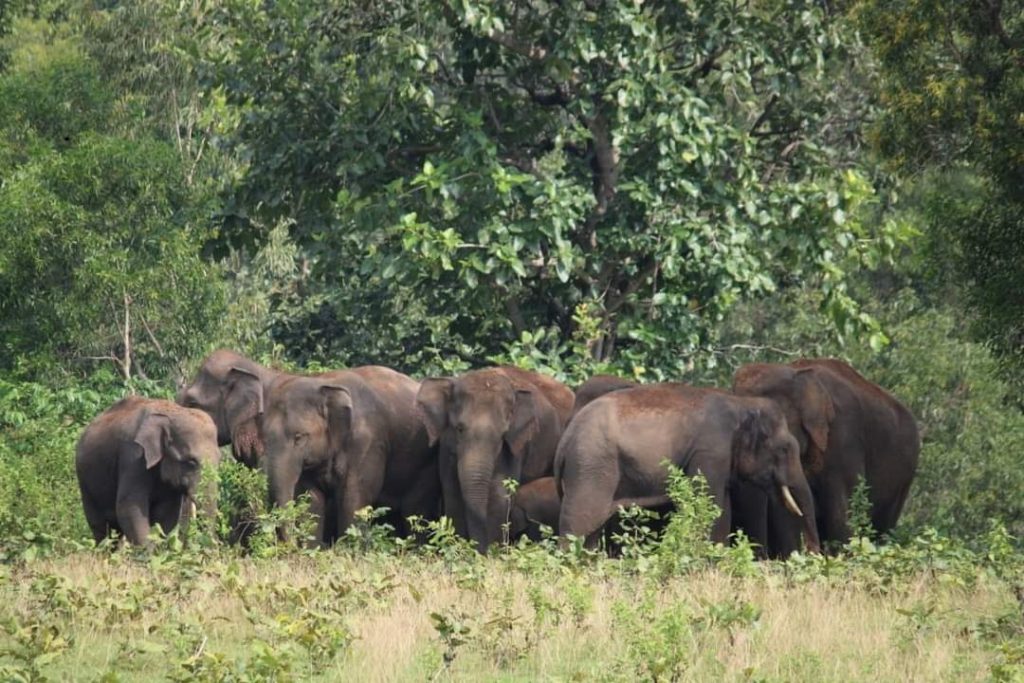Keonjhar: Elephant population is on a decline under Keonjhar forest division due to rising man-animal conflict and other reasons. According to details available from the Forest department, as many as 31 pachyderms have died in Keonjhar forest division during last six years. While only eight of the animals died a natural death, the rest 23 deaths were unnatural. Among those, four died in train accidents, three in road mishaps, five electrocuted while 11 died of diseases. Two jumbos died in 2017-18, three in 2018-19, six in 2019-20, seven in 2020-21, seven in 2021-22 and six in 2022-23 so far. The figure could go up towards the end of the year if adequate measures are not taken to protect the animals from the harsh fallout of man-animal conflicts.
Similarly, humans are equally falling prey to the lingering conflicts with elephants. As many as 47 people have lost their lives in elephant attacks from 2018-19 so far. As per sources, 14 persons died in 2018-19, nine in 2019-20, six in 2020-21, 14 in 2021-22 and four so far in 2022-23. The Forest department has spent around Rs 1.88 crore towards payment of compensation. During this period, over 200 were injured in elephant attacks while eight persons suffered physical disabilities. The injured have been paid Rs 17.60 lakh towards compensation. Elephant menace has become a regular affair in Keonjhar district where the animals often stray into human habitats and cause mayhem by destroying crops and pulling down houses of the villagers. They also kill people when they come face to face with them. This has led to a rise in animosity between villagers and animals. The common people look towards the Forest personnel to protect them but the latter fail to do their bit due to inadequate staff under Keonjhar forest division. Illegal poaching is also another reason to blame for the sharp decrease in number of elephants.
People either kill these animals out of vengeance for the destruction they cause in their villages or poach the tuskers for ivories. The inability of the Forest department to protect the villagers has sparked resentment among the villagers. Locals alleged that the compensation they receive in exchange for their loss is much less in comparison to the actual loss they incur. Jumbo herds are robbing the livelihood of farmers by destroying their paddy and vegetable crops. They are also pulling down the houses of villagers and pushing them to penury. A farmer Sanjay Panda of Nelung village said that the affected farmers and villagers are being paid compensation but they receive very less in exchange due to lack of proper assessment of their loss. Forest officials said that 13,329 farmers have suffered crop loss on 10,732 acre land since 2018-19. They have been paid Rs 3,82,52,276 towards compensation, Forest officials said.
Similarly, 781 persons suffered partial damage to their houses while 308 had complete loss of houses. These people have been paid with Rs 4,09,600 towards compensation. Severe staff crunch is impacting tracking of elephant movement. Forest officials have been engaged to keep a track of jumbo movement daily and file a report to this effect to their senior authorities.
However, staff crunch has hit the plan. There have been many occasions when Forest officials come to know about the elephant deaths much later. The Forest department also has other responsibilities to look after apart from checking elephant menace. It is also keeping a tab on mineral and timber smuggling, poaching and working on plantation programmes and various other developmental works under MGNREGS. The department has posts for 237 employees but has to manage with only 125 of them. The rest 112 posts are lying vacant. Maximum posts are those of forest guards who work on the ground zero. There are 139 posts of forest guards under the forest division.
However, it has only 60 forest guards while the rest 79 posts are lying vacant. Many of the forest guards have to look after two to three forest beats making it difficult for them to track the movement of the elephants and take steps to prevent any impending danger to the animals.
